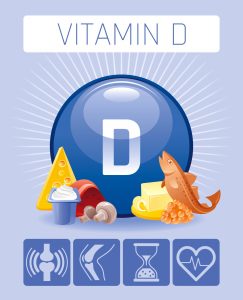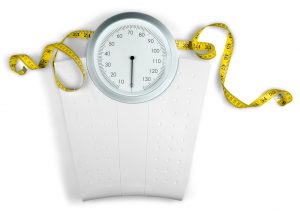 If you have diabetes, you may or may not know that you are at higher risk for heart disease than those who don’t have diabetes. However, in addition to heart disease, you could also be at risk for bone health issues. This risk was discovered in a recent study that found those with diabetes were at higher risk for osteoporosis than those without diabetes. Therefore, this finding warrants further research on this risk. And in turn, standard diabetes diet and supplement treatments may need to be revised to account for this higher risk.
If you have diabetes, you may or may not know that you are at higher risk for heart disease than those who don’t have diabetes. However, in addition to heart disease, you could also be at risk for bone health issues. This risk was discovered in a recent study that found those with diabetes were at higher risk for osteoporosis than those without diabetes. Therefore, this finding warrants further research on this risk. And in turn, standard diabetes diet and supplement treatments may need to be revised to account for this higher risk.
What is osteoporosis?
Osteoporosis is a condition that causes bone loss. It often occurs without any symptoms. Therefore, you may not know you have the condition until you fall and break a bone. The bone loss related to osteoporosis can be caused by the body losing too much bone, not making enough bone, or both.
Literally, osteoporosis means “porous bone” which describes the honeycomb-like bone structure in those with the conditions. These spaces in the bone make it less dense, weaker, and more likely to break. It may be beneficial if you are 50 years of age or older, to get a bone density test.
Height loss or curving of the spine may be serious symptoms of osetoporosis. Therefore, if you have such symptoms and have not yet been diagnose with osteoporosis, you should visit your doctor right away. If diganosed, treatment will likely include vitamin D and calcium supplements, an exercise program, and medications.
You may be at risk for osteoporosis if you have:
- certain autoimmune conditions like rheumatoid arthritis
- certain cancers like breast or prostate cancer
- digestive conditions like inflammatory bowel disease or celiac disease
- a history of weight loss surgery
- liver disease
- and eating disorder
- certain thyroid or hormone-related conditions
You may also be at risk for osteoporosis if you take certain medications such as:
- certain heartburn medicines like Nexium®, Prevacid® and Prilosec®
- some antidepressants like Lexapro®, Prozac® and Zoloft®
- steroids
- certain diabetes medicines like thiazolidinediones
Osteoporosis and Diabetes
Using data from the 2013 Danish National Health Survey, researchers looked at the connection between bone health conditions and other health factors. This analysis found that those people with diabetes were one-third more likely to have osteoarthritis than those without diabetes. These same people were also more likely to have bone related conditions like rheumatoid arthritis and osteoporosis.
Likely related to such bone conditions, those with diabetes were more nearly 30-percent more likely to have back, shoulder, and neck pain as well. Researchers suggest that the link between bone health and diabetes may be inflammation. Diabetes is an inflammatory condition as is arthritis. Therefore, those with one condition may have an increased risk of developing other inflammation-related conditions. This research warrants further research on this connection of inflammatory health conditions.
Ways to help your bone health
If you feel you may be more at risk for bone health conditions, read below for ways you can help improve your bone health.
- Consume plenty of calcium: Calcium is used in many parts of the body such as helping blood clot and muscles to contract. And when the body does not have enough calcium to do these things, it takes the calcium from the bones. Over time, this can make the bones weak. Therefore, be sure to have plenty of calcium in your daily diet. Foods high in calcium include milk, yogurt, fortified breakfast cereals and juices, as well as leafy greens like kale and spinach.
- Go outside every once in while: Vitamin D is also known as the sunshine vitamin since the body can absorb it from the sun. This vitamin helps the body absorb calcium, so it is very important to bone health. Therefore, be sure to get outside at least 10-15 minutes a day with some of your arms, legs, and face showing. During the winter, consume plenty of fatty fish like salmon, eggs, mushrooms, and fortified dairy products for vitamin D. Ask your doctor to have your vitamin D levels checked each year and take a daily supplement if your levels are low.
- Stay active: Exercise is great for not only keeping blood glucose levels stable if you have diabetes, but it is also good for bone health. Weight-bearing exercises like walking, hiking, jogging, dancing, and weight training are good for strengthening bones. Be sure to engage in some sort of physical activity most days of the week. You should engage in strength training such as weight exercises or resistance training at least 2 times a week.
- Eat a plant-based diet: Not only does a plant-based diet contain calcium-rich leafy greens, but is also antioxidant-rich. Antioxidants can reduce the inflammation that can lead to oxidative stress and increased chronic disease risk. Therefore, eat plenty of colorful fruits and vegetables at every meal and snack.
- Take a bone health supplement: If you are having trouble consuming enough calcium and vitamin D, a supplement may be for you. Find a supplement that combines calcium and vitamin D, or take them separate. One such supplement is Osteovent by Vita Sciences. Osteovent contains 400IU vitamin D3 and 1000mg calcium along with other important bone health nutrients like magnesium as well as antioxidants like vitamin C and bromelain.
-written by Staci Gulbin, MS, MEd, RD
References:
National Osteoporosis Foundation (accessed October 10, 2018) “What is osteoporosis and what causes it?”
National Osteoporosis Foundation (accessed October 10, 2018) “Calcium/Vitamin D.”
NIH Osteoporosis and Related Bone Diseases National Resource Center (February 2017) “Osteoporosis Overview.”
 Obesity is a growing problem around the world today. Along with these growing statistics is also the growing amount of diet and exercise programs trying to help people lose weight. Recent research shows though that diet and exercise may not be the whole solution to the obesity issue. Vitamin D, also known as the sunshine vitamin, may be the key to helping people lose weight and lower risk of chronic disease.
Obesity is a growing problem around the world today. Along with these growing statistics is also the growing amount of diet and exercise programs trying to help people lose weight. Recent research shows though that diet and exercise may not be the whole solution to the obesity issue. Vitamin D, also known as the sunshine vitamin, may be the key to helping people lose weight and lower risk of chronic disease. Sleep is a valuable commodity. And it is a whole lot more important than many of us may think. How many times have you told yourself that you can survive on very little sleep. Or maybe you have said that you have more important things to do besides sleep. Sleep is not only important for providing you energy to get through the day. It can also impact your health in a major way if you don’t get enough. Recent research shows that getting more sleep at night could help you lose weight and improve health.
Sleep is a valuable commodity. And it is a whole lot more important than many of us may think. How many times have you told yourself that you can survive on very little sleep. Or maybe you have said that you have more important things to do besides sleep. Sleep is not only important for providing you energy to get through the day. It can also impact your health in a major way if you don’t get enough. Recent research shows that getting more sleep at night could help you lose weight and improve health. An essential part of a heart healthy diet is plenty of plant-based unsaturated fats. Not only do plant-based foods provide heart-healthy fiber, but they are also rich in antioxidants. These antioxidants can help reduce inflammation in the body, and in turn reduce chronic disease risk. One such group of antioxidants are the omega-3 fatty acids found in such foods as avocado, plant-based oils and fatty fish. Recent research shows that these healthy fats may be able to help with mental health. A recent study shows that by increasing the amount of healthy fats in your diet, you could help reduce symptoms of anxiety.
An essential part of a heart healthy diet is plenty of plant-based unsaturated fats. Not only do plant-based foods provide heart-healthy fiber, but they are also rich in antioxidants. These antioxidants can help reduce inflammation in the body, and in turn reduce chronic disease risk. One such group of antioxidants are the omega-3 fatty acids found in such foods as avocado, plant-based oils and fatty fish. Recent research shows that these healthy fats may be able to help with mental health. A recent study shows that by increasing the amount of healthy fats in your diet, you could help reduce symptoms of anxiety. The Greek-style diet has long been touted as one that is full of heart healthy benefits. These benefits are thought to stem from the vast array of healthy fats from plant-based sources and limiting of saturated fats from red meats as well as the rich source of fruits and vegetables in this Mediterranean regimen. However, the health benefits may extend much further than initially realized. A recent study shows that the Mediterranean diet may help to lengthen life of older adults.
The Greek-style diet has long been touted as one that is full of heart healthy benefits. These benefits are thought to stem from the vast array of healthy fats from plant-based sources and limiting of saturated fats from red meats as well as the rich source of fruits and vegetables in this Mediterranean regimen. However, the health benefits may extend much further than initially realized. A recent study shows that the Mediterranean diet may help to lengthen life of older adults. Any kind of movement is good for health. Studies have shown time and again that sitting is bad for health. But, is one kind of exercise better than the other when it comes to weight loss? This is a controversial topic since some studies show that strength training can keep calories burning long after your workout. However, a recent study has shown that cardio exercise may actually be better than strength training in boosting metabolism.
Any kind of movement is good for health. Studies have shown time and again that sitting is bad for health. But, is one kind of exercise better than the other when it comes to weight loss? This is a controversial topic since some studies show that strength training can keep calories burning long after your workout. However, a recent study has shown that cardio exercise may actually be better than strength training in boosting metabolism. About alcohol
About alcohol Could it be? Could the delicious sweetness of chocolate actually be good for you? The answer is yes, but in moderation. Chock full of antioxidants, this delicious treat may be able to help you combat heart disease. A recent study has shown that moderate consumption of chocolate can reduce risk of heart disease.
Could it be? Could the delicious sweetness of chocolate actually be good for you? The answer is yes, but in moderation. Chock full of antioxidants, this delicious treat may be able to help you combat heart disease. A recent study has shown that moderate consumption of chocolate can reduce risk of heart disease. A recent study of 2000 overweight men and women with prediabetes looked at the effects of a low-calorie diet. After eight weeks, the men in the study lost significantly more weight than women and had larger reductions in their metabolic score, which is a marker for diabetes. In addition, the men had greater loss of fat mass and lower heart rate after eight weeks on the diet. However, women did have the upper hand on some health markers. In fact, women had a larger reduction in hip circumference, lean body mass, and pulse pressure than men.
A recent study of 2000 overweight men and women with prediabetes looked at the effects of a low-calorie diet. After eight weeks, the men in the study lost significantly more weight than women and had larger reductions in their metabolic score, which is a marker for diabetes. In addition, the men had greater loss of fat mass and lower heart rate after eight weeks on the diet. However, women did have the upper hand on some health markers. In fact, women had a larger reduction in hip circumference, lean body mass, and pulse pressure than men. Probiotics are getting more press each and every day for their health benefits. From skin health, improving bone health, and of course, enhancing gut health, the possibilities seem endless. In fact, a recent study shows that combining a probiotic with breastfeeding in the first year of life can have improvements in the gut health of infants.
Probiotics are getting more press each and every day for their health benefits. From skin health, improving bone health, and of course, enhancing gut health, the possibilities seem endless. In fact, a recent study shows that combining a probiotic with breastfeeding in the first year of life can have improvements in the gut health of infants.